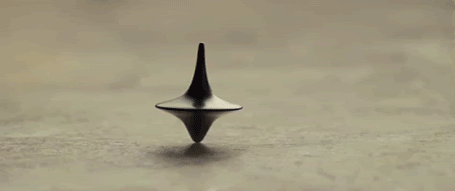Table of Contents

Photo: ‘Inception’/Warner Bros.
Spoilers Ahead!
Christopher Nolan’s Inception is an interesting film for various reasons, but its portrayal of dreams might be its most captivating feature. For me, the film’s emotional impact lies significantly in the fact that I believe in its scenario and the plight of its main character, Cobb, (Leonardo DiCaprio) despite the fact that most of it (or all of it) is a dream. This article is somewhat of an attempt to find out to what degree the film’s sense of realism derives from credible dream theory. With the help of Sigmund Freud’s The Interpretation Of Dreams and my own perspective, I will attempt to present the ways in which the realism of Inception’s presentation of dreams adds to its impact. Spoiler warning!
What defines realism will be different for each person. Obviously, the film is totally implausible from a totally logical standpoint, but it is infused with realistic ideas nonetheless. I will evaluate its realism in relation to the elements of the dream process that seem relatable to me. This will not be an article comparing my own dreams to those presented in the film, so this is where Freud comes in. I have chosen the elements of his text that relate to my own experience in order to present a more universally recognised barometer for judging the realism (or lack thereof) of dreaming in the film. I will focus on the function of dreams as wish fulfilment and memory. I will then touch upon the film’s sensorily realistic presentation of dreams and will finish by discussing the lucidity of the dreams and some limits to its realism that I experience.
Related article: Christopher Nolan’s ‘Inception’: The Decade’s Greatest Film Excels
Related article: FACT-CHECKED Series: Leonardo DiCaprio and 32 Facts on the Legendary Star
Inception’s Dreams: Wish Fulfilment- Cobb (And Fischer)
It could be argued that the fundamental philosophy of The Interpretation Of Dreams is the idea that they act as wish fulfilment. This is an idea that is carried over to a great extent in Inception, the premise of which is predicated on the existence of controlled lucid dreaming. Freud cites Radestock’s claim that “To the man who is tormented by physical or mental suffering the dream grants what reality has denied: well-being and happiness”, a statement that seems to reflect the condition of Cobb. For much of the film, Cobb intends to fix his past. The main way he does that is through dreams. He creates a literal lift of memories of his dead wife, Mal (Marion Cotillard), and states that he goes back to these dreams because they are “still together” and because he must alter them to change the mistakes he made in real life. His wish is not only to be with his wife but to also lessen his guilt at the part he played in her death. His use of dreams as a palliative to torment is evident.
Freud’s description of grief-led dreams is interesting in relation to this. He states that the wish to see the dead person “offers no occasion for grief, and that is why no grief is felt in the dream either”. When Cobb specifically dreams of Mal there does seem to be an absence of grief in the sense that the fact of seeing her seems to override any sense of sadness. When Ariadne (Ellen Page) finds them together they are conversing happily. In fact, the film only definitively tells us that she is dead towards the middle of the second act after she has already appeared multiple times. Her presence in the dream is realistic in that she appears as a live character rather than being immediately framed in relation to the tragedy of her death.
Related article: Hollywood Insider’s CEO Pritan Ambroase: “The Importance of Venice Film Festival as the Protector of Cinema”
Related article: Live Updates: List of Successes From Black Lives Matter Protests!
As well as the positive motivation of wanting to be with his wife, Cobb’s need to dream is also linked to a more generalised wish to escape reality (which we all have faced, probably). Freud writes that “the wish to sleep must always be included among the motives for the formation of dreams” and that “Withdrawal of attention from the external world, too, retained its importance in our conception of the dream”. Though it isn’t of the utmost importance to Freud the wish to escape reality is certainly something he acknowledges. In the case of Cobb, it is front and centre. Indeed, Cobb tells and later shows us that he and Mal spent fifty years in limbo literally “building worlds together”. Though it is not self-generated and is almost definitely falsified, Fischer’s cathartic “realisation” that his dead father “loved him and wanted him to be his own man” also falls in line with this notion of fulfilled desire. Inception’s presentation of wish fulfilment echoes Freud’s theories of dreams related to grief and escape from reality, which anchors its narrative in a sense of reality that magnifies its poignancy.
Dreams are Important
Linked to this idea of wish fulfilment is the notion that dreams can affect one’s conscious life in an important manner. Both Freud and Inception present this belief. Freud writes that “Every dream turns out to be a meaningful psychical formation which can be given an identifiable place in what goes on within us in our waking life”. Similarly, Cobb’s eventual cathartic reconciliation with his wife is certainly meaningful to him. Part of the genesis of Inception seems to be rooted in the notion that once an idea is in your head, it cannot be unlearned. When discussing the heist on Fischer, Cobb warns that it “may come to change everything about him”. Freud additionally states that the dream “teaches us that nothing that is once mentally our own can ever be entirely lost”, and cites Robert’s claim that “they possess the power to heal and relieve”. These comments are directly applicable to what happens to Fischer and Cobb in the climax of the film. Both works, therefore, seem to rally against the idea that dreams are reductively “just in your head” and instead emphasise their importance to conscious life. To this degree, the portrayal of dreams in Inception is realistic because it recognises their vitality as vehicles for meaningful realisation. Whether or not you think this suggests realism will depend on your position on dreams, but for me, the film’s emphasis on their fundamental importance gives it weight.
Dreams are From our Past More Than Our Future
Where many films like to present dreams as premonitions (Hello Zack Snyder), Nolan follows Freud’s assertion that “in every sense, dreams come from the past”. To be specific, as well as characters dealing with their past in an emotional sense, the layout of the dreams often does so in a very literal sense. This presentation is in-keeping with Freud’s statement “That all the material composing the content of the dream derives in some way from our experience, and so is reproduced, remembered, in the dream”. As has been remarked by many, Cobb wears his wedding ring in the dreamed sequences to symbolise his grief over his wife. Fischer’s catharsis involves him reacting heartbreakingly to his childhood toy.
The team also set up their heists in real locations to trick their targets into thinking that they are in reality. In the first heist performed on Saito, one of the dream levels is set in his real-life hideaway to do just this. Throughout the narrative, the use of realia from the past is increasingly important to the drama. Characters are warned against using real locations so as not to lose track of the difference between reality and dreams. Cobb warns Ariadne against this early on, yet is increasingly found out for being equally guilty by using his house and past beach holidays as dream locations. The film identifies the credible notion that dreams are physically formed from elements of our past and uses it for dramatic effect.
Related article: The Power of Positivity: Ikorodu Bois + Chris Hemsworth + Russo Brothers + Sam Hargrave
Limited Time Offer – FREE Subscription to Hollywood Insider – Click here to read more on Hollywood Insider’s vision, values and mission statement here – Media has the responsibility to better our world – Hollywood Insider fully focuses on substance and meaningful entertainment, against gossip and scandal, by combining entertainment, education, and philanthropy.
Sensory Realism
Visually, a great deal of Inception’s dreams seems rooted in reality. This is partly due to Nolan’s overriding filmmaking philosophy, but also to the fact that much of the visual content is taken from realistic psychological theory. Both works present the notion that external stimuli affect the world of the dream. This is complicated by the film in the sense that the dreams are themselves within dreams- but the principle is similar nonetheless.
Freud writes that “the fact that we can always be woken by stronger stimuli may be taken as proof that even in sleep the psyche has remained in constant contact with the world external to the body”. Indeed in Inception, the dream worlds are in contact with each other in a similar way. The film visualises the assertion that “even in sleep the psyche is perfectly capable of interpreting correctly the sense impressions reaching it”. In the first sequence, an explosion on the dream level above causes Saito’s castle to tremble underneath. As Cobb is plunged into a bathtub in Saito’s flat, the dream below becomes submerged in water. As Yusuf’s driving intensifies, the hotel lobby shakes. Most memorably when Yusuf’s car is spinning in mid-air, so does the corridor in the dream level below where Arthur is fighting projections.
As well as external factors, the film also alludes to the notion that internal stimuli affect the structure of the dream. In what is essentially a gag, Yusuf drinks too much champagne and causes the first dream level to be beset by unnaturally high levels of rain. Though a fine detail in many ways this is a feature that has total credibility if Freud’s findings are to be believed. His statement “that in dreams water often indicates a stimulus from the bladder” essentially validates the realism of this moment in of itself. We can see that at least on some level, the visual representation of dreams in the film is rooted in their function in reality.
Related article: ‘Dune’: Reactions from Timothée Chalamet, Denis Villeneuve, Zendaya, Jason Momoa & Co-Stars
Related article: A Tribute to Leonardo DiCaprio: The Generation Defining Thespian & Hollywood Legend
The realism of the film’s presentation of dreams is heightened by Nolan’s insistence on the tactility of their portrayal. Cobb’s statement that “dreams seem real while we’re in them” seems to influence every aspect of their presentation in the film. This is an idea supported by the psychological literature. Freud cites Scherner’s remark that “if we are afraid of robbers in a dream, the robbers are certainly imaginary, but the fear is real”. Cobb makes an almost identical comment about a face full of glass “hurting like hell” in the dream even though we know it is imaginary. Arthur even explains that in the film’s world, the army uses dream-sharing to get used to unbearable amounts of pain. The film makes a concerted effort to stress the sensory realism of its dreams.
At this point, it is also well known that when he can, Nolan performs sequences in-camera and with minimal use of CGI. This approach to filmmaking heightens the believability of the portrayal of dreams. In the heist’s first sequence, rain machines were used to create the colossal showers we see on screen. When discussing Inception the team meet in a huge, real empty street backgrounded by only a few CGI buildings. The spinning corridor in which Arthur fights the projections was genuinely built. When water consumes Saito’s dream, real water is flooding the set. Even the eerie, infinite city in limbo seems strangely plausible. The realism of the presentation of dreams in Inception owes a lot to Nolan’s commitment to practical effects as well as the attempt to present them as psychologically credible. The visuals are strange enough to seem uncanny, but still realistic enough that like the characters, it is easy to forget that it is a dream. The fact they seem real isn’t just another Nolanism- it is essential to the particular nature and power of the story.
Related article: Tenet Review: Christopher Nolan Turns Time & The World Inside-Out In His Latest Blockbuster Hit
Related article: Every Christopher Nolan Film Ranked from Good to Best, Director of the Most-Anticipated Film ‘Tenet’
Time, of course
As well as shooting in-camera, Nolan also holds another obsession: time, which in the film slows down during dreams. Though you may be forgiven for thinking this is an excuse for Nolan to address the topic, it is also widely thought that dreams do have a time-dilating effect. Freud’s assertion that “dreams are capable of compressing far more perceptions into a very short space of time than our psychical activity can cope within our thoughts while we are awake” indeed corresponds to their portrayal in Inception. The film even turns this into concrete science: “5 mins in the real world gives you an hour in the dream”, says Arthur. Though a leap in regards to actual reality, that this is derived from credible theory further contributes to the story’s pull.
The film aggressively squeezes the drama out of this concept. Saito is immediately shot in the first dream level and is forced to descend into limbo, trapped in the dream by heavy sedation. By the end of the film, he has lived an entire lifetime before being found and woken up by Cobb. This concept is crucial to the film’s stakes; in a world where death is impossible, the next worse threat is the idea of living out infinite time in isolation until your “mind turns to mush”, as Eames puts it.
On the other hand, the film also presents the allure of infinite dreams, an element that suggests the notion that they can act as a palliative to death. Burdach is cited by Freud as stating that “without dreams, we would certainly grow old sooner, and so we can regard the dream, if not as a direct gift from above, still as a delightful task, a friendly companion on our pilgrimage to the grave”. This is a key notion in the film which raises existential questions like; would you live life naturally or live in dreams in order to delay death? In the film’s most poignant moment, Cobb finally reconciles with Mal by stating the fact that they have already spent a lifetime together in their dreams. Though that lifetime “isn’t real” it is presented as having the same impact. This is a further example that Inception is powerful not only because it has a complex concept and fun visuals, but because behind those visuals lie human questions that engage emotionally.
Related article: A Tribute to Christopher Nolan & His Muse TIME: ‘Inception’, ‘Interstellar’ & ‘Tenet’
Related article: A Tribute to Christian Bale: Most Dramatic Transformations – The Winner’s Journey
Lucidity
There are obviously still fundamental differences between the film’s and Freud’s definitions of dreams. A key difference is that Inception presents a world in which dreams are navigated lucidly, whereas Freud’s vision feels a little less conscious, for lack of a better word. The film expands on Freud’s comment that “It is not that the dream forms the imagination, but that the unconscious activity of the imagination has the greatest share in the formation of dream thoughts”. Inception indeed zeroes in on the notion of an “active imagination” operating in the subconscious, able to create worlds from the ground up as well as drawing from memory and other normal factors. Normal dreaming still exists in the film, but we are mainly presented with this more constructed dream world. As Cobb states, it offers the chance to “build cathedrals”, which is exactly what the characters do. This may to some significantly limit the realism of the film’s presentation of dreams, but Inception still manages to strike a balance between this more created space and the now widely accepted concepts argued by Freud. Additionally (though this may seem like an obvious excuse), the fact that it is a film and not a study means that it should be forgiven for taking some liberties.
Nothing is perfect
The main limit to the realism of the film’s portrayal of dreams is for, me, a smaller detail. Throughout the film we see that Cobb’s subconscious affects the dreams regardless of whether or not he is the dreamer, however, we never see or hear about this happening with anybody else. It seems to me that the rest of the team would also have demons, however big or small and that they would also manifest in some specific way- it seems strange that Cobb is the only one who suffers from this. Of course, this is only a problem to a certain extent as it is partly explained by the fact that the film is primarily about Cobb, but, to me, this is also an arguable point of implausibility that slightly contradicts the rules the film lays out.
Related article; River Phoenix: 32 Facts on the Phenomenal Hollywood Icon & Legendary Superstar | A Tribute
Related article: Groundbreaking Original Films That Elevated Cinema Reaching Highest Peaks
Conclusion
In spite of this, it remains my view that for a summer blockbuster, the credible detail present in the presentation of dreams in Inception is astonishing, whether by design or not. Both the story and visuals appear real enough that they not only provide credible information about dreams, they also imbue the narrative with emotional depth. Few film moments have moved me the way I was when Fischer (Cillian Murphy) crumbles at the sight of his toy windmill, his last happy connection to his father. This moment would not have been as powerful if I did not believe in the world I was watching.
The portrayal of dreams in Inception is therefore appropriately realistic, not only in its correspondence to dream theory but more importantly, through the emotional impact it achieves.
Click here to read Hollywood Insider’s CEO Pritan Ambroase’s love letter to Black Lives Matter, in which he tackles more than just police reform, press freedom and more – click here.
An excerpt from the love letter: Hollywood Insider’s CEO/editor-in-chief Pritan Ambroase affirms, “Hollywood Insider fully supports the much-needed Black Lives Matter movement. We are actively, physically and digitally a part of this global movement. We will continue reporting on this major issue of police brutality and legal murders of Black people to hold the system accountable. We will continue reporting on this major issue with kindness and respect to all Black people, as each and every one of them are seen and heard. Just a reminder, that the Black Lives Matter movement is about more than just police brutality and extends into banking, housing, education, medical, infrastructure, etc. We have the space and time for all your stories. We believe in peaceful/non-violent protests and I would like to request the rest of media to focus on 95% of the protests that are peaceful and working effectively with positive changes happening daily. Media has a responsibility to better the world and Hollywood Insider will continue to do so.”
Vote with a conscience – Register to Vote – Your vote saves lives and ends systemic racism
Ways to support Black Lives Matter Movement to end systemic racism
More Interesting Stories From Hollywood Insider
– Want GUARANTEED SUCCESS? Remove these ten words from your vocabulary| Transform your life INSTANTLY
– Compilation: All James Bond 007 Opening Sequences From 1962 Sean Connery to Daniel Craig
– Do you know the hidden messages in ‘Call Me By Your Name’? Find out behind the scenes facts in the full commentary and In-depth analysis of the cinematic masterpiece
– A Tribute To The Academy Awards: All Best Actor/Actress Speeches From The Beginning Of Oscars 1929-2019 | From Rami Malek, Leonardo DiCaprio To Denzel Washington, Halle Berry & Beyond | From Olivia Colman, Meryl Streep To Bette Davis & Beyond
– In the 32nd Year Of His Career, Keanu Reeves’ Face Continues To Reign After Launching Movies Earning Over $4.3 Billion In Total – “John Wick”, “Toy Story 4”, “Matrix”, And Many More
Inception’s Dreams, Inception’s Dreams, Inception’s Dreams, Inception’s Dreams, Inception’s Dreams, Inception’s Dreams, Inception’s Dreams, Inception’s Dreams, Inception’s Dreams, Inception’s Dreams, Inception’s Dreams, Inception’s Dreams, Inception’s Dreams, Inception’s Dreams, Inception’s Dreams, Inception’s Dreams, Inception’s Dreams, Inception’s Dreams, Inception’s Dreams, Inception’s Dreams, Inception’s Dreams, Inception’s Dreams, Inception’s Dreams, Inception’s Dreams, Inception’s Dreams, Inception’s Dreams, Inception’s Dreams, Inception’s Dreams, Inception’s Dreams, Inception’s Dreams, Inception’s Dreams, Inception’s Dreams, Inception’s Dreams, Inception’s Dreams, Inception’s Dreams, Inception’s Dreams, Inception’s Dreams, Inception’s Dreams, Inception’s Dreams, Inception’s Dreams, Inception’s Dreams, Inception’s Dreams, Inception’s Dreams, Inception’s Dreams, Inception’s Dreams, Inception’s Dreams, Inception’s Dreams, Inception’s Dreams, Inception’s Dreams, Inception’s Dreams

Hollywood Insider is a media network thatfocuses on substance and meaningful entertainment/culture, so as to utilize media as a tool to unite and better our world, by combining entertainment, education and philanthropy, while being against gossip and scandal.









